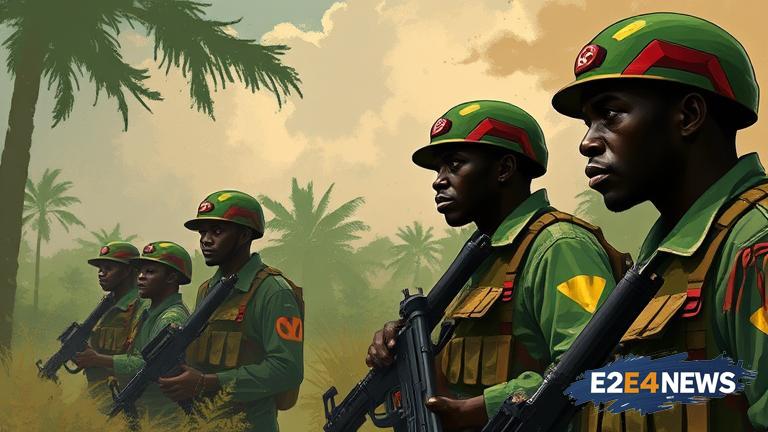The M23 rebel group, operating in the eastern Democratic Republic of Congo, has categorically rejected a call from the United States for them to withdraw from the region. This stance comes amidst heightened tensions and ongoing conflict in the area. The rebels assert that they have a legitimate mandate to govern the DRC, citing the need for political reform and an end to what they describe as the corrupt and ineffective governance of the current administration. The US had urged the M23 to cease hostilities and withdraw from the territories they occupy, emphasizing the need for a peaceful resolution to the conflict. However, the M23 leadership has refused to back down, stating that their movement is driven by the desire to bring about meaningful change and improve the lives of the Congolese people. The conflict in the DRC has resulted in significant humanitarian challenges, including displacement of populations, human rights abuses, and economic instability. The international community, including the United Nations, has been involved in efforts to broker a peace agreement and stabilize the region. Despite these efforts, the situation remains volatile, with the M23 and other armed groups continuing to exert control over parts of the country. The DRC government has faced criticism for its handling of the crisis, with many accusing it of failing to address the root causes of the conflict. The M23’s refusal to withdraw has been met with concern from neighboring countries, which fear the potential for the conflict to spill across borders. Regional and international organizations are working to find a solution, but the complexity of the issue and the deep-seated grievances of the parties involved make a swift resolution unlikely. The M23’s claim to a mandate to govern is based on their assertion that the current government is illegitimate and has failed to serve the interests of the people. They point to issues such as corruption, poor governance, and the lack of economic opportunities as evidence of the need for change. The situation is further complicated by the involvement of external actors, including neighboring countries and international powers, which have their own interests and agendas in the region. As the conflict continues, the humanitarian toll mounts, with civilians caught in the middle and bearing the brunt of the violence. The need for a negotiated settlement is clear, but the path forward remains uncertain. The M23’s defiance of the US call for withdrawal is a significant development, indicating a hardening of positions and a potential escalation of the conflict. The international community must continue to push for a peaceful resolution, while also addressing the underlying issues that have driven the conflict. This includes supporting efforts to reform the political system, improve governance, and promote economic development. Only through a comprehensive approach can the cycle of violence be broken and a stable, prosperous future be secured for the people of the DRC. The role of the US and other international actors will be crucial in this process, as they work to balance their own interests with the need to support a peaceful and sustainable resolution to the conflict. Ultimately, the resolution of the conflict will depend on the ability of the parties involved to find common ground and work towards a shared vision for the future of the DRC. The M23’s assertion of a mandate to govern highlights the deep-seated nature of the conflict and the need for a fundamental transformation of the political and social landscape. As the situation continues to evolve, the international community must remain vigilant and committed to supporting a peaceful and just outcome for all parties involved.
